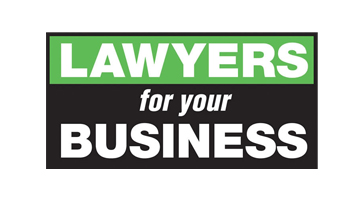Understanding the different types of commercial leases in the UK is crucial for navigating the complexities of leasing agreements. With various options available, each type of lease offers distinct terms and flexibility that can greatly impact your business operations and financial planning. This guide explores the primary forms of commercial leases to help you make informed decisions.
In This Article
Types of Commercial Leases
Full Repairing and Insuring Lease (FRI Lease):
- Key Features: The tenant is responsible for all repairs and maintenance of the entire property, as well as the insurance costs.
- Benefits: Typically offers a lower rent due to the tenant’s commitment to repairs and maintenance.
- Considerations: Tenants should budget for potential maintenance expenses and necessary repairs throughout the lease term.
Internal Repairing and Insuring Lease (IRI Lease):
- Key Features: The tenant covers repairs and maintenance for the interior of the property only. The landlord remains responsible for external repairs and insurance.
- Benefits: This lease reduces the tenant’s maintenance obligations compared to an FRI lease.
- Considerations: The tenant must understand what constitutes ‘internal’ vs. ‘external’ and ensure clarity in the lease agreement.
Short-Term Lease:
- Key Features: Generally lasts for a few months to a couple of years, offering flexibility for businesses with changing needs.
- Benefits: Ideal for startups or businesses needing temporary space, providing flexibility and reduced long-term commitments.
- Considerations: Rents are often higher per square meter compared to longer leases, and there may be fewer opportunities to negotiate terms.
Long-Term Lease:
- Key Features: Typically spans several years, providing stability and fixed costs over the lease duration.
- Benefits: Provides security and can result in lower annual rent increases compared to short-term leases.
- Considerations: Limited flexibility if business needs change, and breaking the lease early may incur penalties.
License to Occupy:
- Key Features: Offers a short-term, flexible agreement allowing occupancy without the security of tenure traditionally associated with leases.
- Benefits: Highly flexible and easy to terminate, it suits businesses needing temporary space.
- Considerations: Typically lacks tenant security, and terms can be changed more easily by the landlord.
Sublease:
- Key Features: An existing tenant (lessee) leases part or all of their space to another tenant (sublessee).
- Benefits: Allows businesses to sublease unused space, optimizing cost efficiency.
- Considerations: The original tenant remains responsible for the entire lease with the landlord, including rent payments and property conditions.
Renewable Lease:
- Key Features: These include renewal options, allowing tenants to extend the lease after the initial term.
- Benefits: Provides the security of continuous occupation if needed, with terms often predetermined in the lease.
- Considerations: Often requires adequate notice to renew, failure to do so may result in losing the opportunity to extend the lease.
Factors to Consider When Choosing a Lease
- Business Needs: Assess your operational requirements carefully to determine which type of lease best suits your business model.
- Financial Planning: Evaluate the total cost implications of each lease type, factoring in rent, maintenance, insurance, and other possible expenses.
- Flexibility vs. Stability: Determine the need for flexibility in your lease agreement versus the benefits of long-term stability.
- Negotiation Leverage: Understand opportunities for negotiation and tailor the lease terms to your advantages, such as asking for rent-free periods or repairs before signing.
Conclusion
Selecting the right type of commercial lease is instrumental in shaping your business’s operational success in the UK. By discerning the differences between these lease types, you can manage your expectations, align them with your business strategies, and make decisions that complement your long-term business objectives. Always seek advice from property law experts or real estate professionals to ensure that your lease agreement aligns perfectly with your business strategy and compliance needs.
Your Next Step
Contact us today at 0121 268 3208 or via email at info@onyxsolicitors.com for a FREE consultation. Let us help you achieve the peace of mind that comes with having expert legal support on your side.





